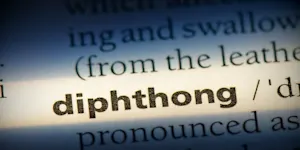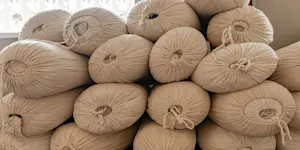What Makes This Word Tick
Ah, "pinochle"! It's a delightful blend of card-playing and strategy. Though not as commonly played as poker or blackjack, this game holds its place in the hearts of many. Pinochle is typically played with a special deck of 48 cards, and the game thrives on trick-taking and melding, offering plenty of opportunities for clever tactics and friendly rivalry.
If Pinochle Were a Person…
Picture a genial, retired professor who spent weekends organizing bridge nights at the local community center. They are sharp-witted and never shy away from a healthy debate or a strategic battle of wits over a round of cards. You'll find them wearing a cozy sweater, sipping on a hot cup of tea, and reminiscing about the "good old days" when they aced their favorite pinochle hand.
How This Word Has Changed Over Time
Over the years, "pinochle" has retained its essence as a card game but has become less common outside certain communities. In its heyday, particularly during the mid-20th century, it was a staple of American leisure activities, played at kitchen tables and community centers. Though its popularity has diminished, enthusiasts still gather to keep the game's legacy alive.
Old Sayings and Proverbs That Use Pinochle
While pinochle isn’t exactly the muse for many proverbs, it does capture the spirit of mid-20th-century Americana, akin to sayings like "a penny for your thoughts," where simple pleasures and conversation were king.
Surprising Facts About Pinochle
Did you know that pinochle was originally brought to the United States by German immigrants? It was most popular among them in the 19th century. The game still carries its heritage proudly, bonding generations over strategy and chance.
Out and About With This Word
You're more likely to hear about pinochle in retirement communities and among groups of friends gathering for a game night. It’s the card game equivalent of classic comfort food—familiar, gratifying, and best enjoyed with good company.
Pop Culture Moments Where Pinochle Was Used
Pinochle might not have the glamor of poker on the big screen, but it did make its way into several old-timey radio shows and sitcoms. It often symbolizes a simpler time and the camaraderie found in close-knit communities.
The Word in Literature
In literature, pinochle often pops up in stories set in small towns or during family gatherings. It's the backdrop for narratives exploring social dynamics and the bonds formed over leisurely activities on a Sunday afternoon.
Moments in History with Pinochle
During the heyday of the Great Depression, pinochle provided an affordable form of entertainment. Families and friends would gather around the table, finding solace and joy in the cards away from the harsh realities outside.
This Word Around the World
Pinochle doesn’t have a direct equivalent in many cultures outside the U.S., but its spirit is resonant with European card games like skat in Germany. There’s a sense of international kinship among those who love trick-taking games.
Where Does It Come From?
The word "pinochle" is of German origin, derived from "binokel," referring to a combination of cards that initially involved specific trump cards that would score points in the game.
How People Misuse This Word
Sometimes, people mistakenly refer to "pinochle" as a simple card game like solitaire. In reality, it’s a complex, strategic game that requires two to four players working in partnership.
Words It’s Often Confused With
Pinocle: A common misspelling that omits the "h."
Rummy: Both involve melding, but they are different games.
Euchre: Another trick-taking game, but with different rules.
Additional Synonyms and Antonyms
Though not directly synonymous with other games, pinochle shares its social essence with games like "bridge" and "canasta." Antonyms might include solitary activities like "solitaire."
Want to Try It Out in a Sentence?
"After dinner, Grandpa always insisted everyone sit down for a few rounds of lively pinochle, which he claimed kept his mind as sharp as his wit."
















